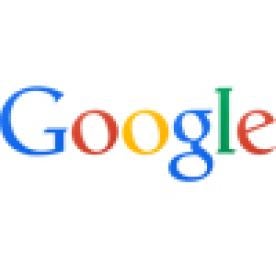The Authors Guild, et al. v. Google, Inc.
Addressing the boundaries of fair use in copyright law, the U.S. Court of Appeals for Second Circuit found that the making of digital copies of tens of millions of books to establish a publicly available search function was a fair use under 17 U.S.C. § 107 and therefore not an infringement. The Authors Guild, et al. v. Google, Inc., Case No. 13-4829 (2d Cir., Oct. 16, 2015) (Leval, J.).
Through its Library Project and its Google Books project, Google has made digital copies of tens of millions of books, including the plaintiffs’, without permission of rights holders. Google Books provides a brief description of each book, including a list of the words and terms that appear with the most frequency in the book and, sometimes, a link to buy the book online or identification of libraries where the book can be found. The Google Books search engine allows members of the public to enter search words or terms and receive in response a list of all books in the database in which those terms appear, as well as the number of times the term appears in each book. The search function also displays a maximum of three “snippets” containing the word or term. This “snippet” view is designed to show the searcher just enough context surrounding the searched term to help her evaluate whether the book falls within the scope of her interest, without revealing so much as to threaten the author’s copyright interest.
The plaintiffs alleged that these activities infringe their copyrights, while Google argued its actions constitute “fair use” under § 107 and are therefore not an infringement. The 2d Circuit agreed with Google and found that Google’s making of a digital copy to provide a search function was transformative and thus a fair use. The court explained that Google’s use augments public knowledge by making available information about the plaintiffs’ books without providing the public with a substantial substitute for matter protected by the plaintiffs’ copyright interests in the original works or derivatives of them. The 2d Circuit emphasized that while authors are important intended beneficiaries of copyright, the ultimate and primary intended beneficiary is the public, whose access to knowledge is the interest copyright seeks to advance by providing rewards for authorship.
The 2d Circuit explained that Google Books is designed to make sufficient information about the digitally copied books available to allow a searcher to locate books containing a particular word or term of interest. The Court found that Google’s provision of the “snippet” function does not reveal matter that offers the marketplace a significantly competing substitute for the copyrighted work. The author’s derivative rights do not include an exclusive right to supply information about her works.
The 2d Circuit also considered whether Google’s profit motivation is enough to justify denial of fair use in these circumstances. The court relied on Campbell v. Acuff-Rose Music to find that “the more transformative the [secondary] work, the less will be the significance of other factors, like commercialism, that may weigh against a finding of fair use.” The court found no reason why Google’s overall profit motivation should prevail as a reason for denying fair use over its highly convincing transformative purpose, together with the absence of significant substitute competition, as reasons for finding fair use.
Practice Note: When crafting arguments on copyright infringement, keep in mind the primary intended beneficiary of the copyright laws is the public, not the copyright holder.



 />i
/>i
